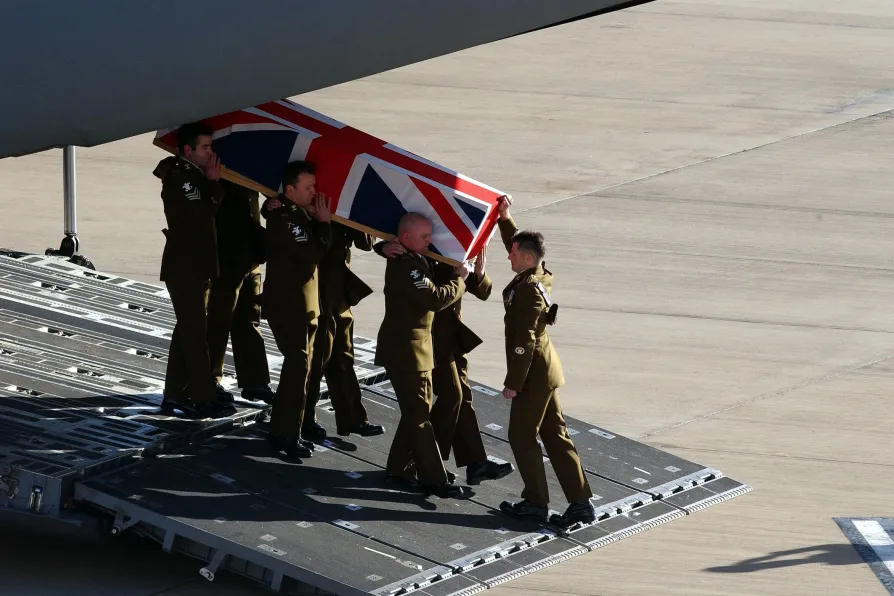
 Soldiers carry the coffin of Trooper Carl Smith, 23, who was the 101st UK serviceman to die in Iraq, in 2006
Soldiers carry the coffin of Trooper Carl Smith, 23, who was the 101st UK serviceman to die in Iraq, in 2006
THE Ministry of Defence (MoD) spent £90 million on compensating troops and families last year for scores of deaths and injuries in service, new figures reveal.
The injuries, which included burns, amputations and mental disorders, cost the department £80.2m.
But the payouts would have cost much more if 41 per cent of the 6,719 claims were not rejected.
Another £9.6m was paid to an unspecified number of “surviving dependents following deaths caused by service.”
The payments were made under the Armed Forces Compensation scheme, which was launched in 2005.
The MoD has paid out over £859m in compensation to tens of thousands of troops, veterans and their families since the scheme began.
The latest figures show:
- Over 26,000 claimants served in Iraq and/or Afghanistan prior to making their claims.
- There had been at least 3,370 lump sums paid out to personnel suffering from Post-Traumatic Stress Disorder.
- There are now 620 spouses and children in total receiving payouts for the loss of their partner or parent in service.
CASE STUDY 1: Steven Sampher
Staff Sergeant Steven Sampher was shot in the head by the Taliban and lost a leg while serving in Afghanistan in 2012.
Seven years later he is still battling to receive compensation and told his local paper the scheme is designed to “make it as hard as possible for veterans to claim compensation.”
His MP, Labour’s Melanie Onn, has told Parliament that he is “going through hell” trying to navigate the compensation scheme.
CASE STUDY 2: Douglas McNeill
Deaths from service can occur long after the incident itself. This March a coroner ruled that a British army veteran who was paralysed while serving in central America in 1992 had died of his injuries a quarter of a century later.
Douglas McNeill hit his head on some rocks and permanently damaged his spine after he fell from a boat in Belize.
The accident left him tetraplegic and requiring round-the-clock care.
He was repeatedly admitted to Poole General Hospital with sepsis and died in 2017.
At the inquest, assistant Dorset coroner Brendan Allen ruled that the original fall from the boat was the overriding cause of Mr McNeill’s death.

















